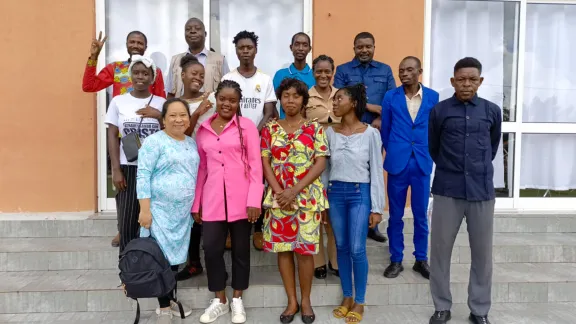
ELCA visits the LWF Angola program during the localization
Thirty-eight years ago, the Lutheran World Federation (LWF) responded to a humanitarian crisis in the province of Lunda Sul, Angola. An ongoing civil war was driving people across the nation's borders into Zambia and the Democratic Republic of Congo. LWF provided relief services in refugee camps while the conflict—considered a proxy war between the United States and the Soviet Union in the 1980s and' 90s—continued in Angola.
When the war ended in 2002, LWF repatriated almost 1.2 million Angolans, helping them reestablish their lives in their old communities through village development committees (VDCs). It also provided livelihood training and capital input for farming and livestock. The communities are committed to becoming resilient and economically self-sufficient.
New land through LWF advocacy
Victoria Ipanga and Josi Luanda are presidents of the VDCs in their respective villages in Lunda Sul. Their villages lie near diamond mining operations that have encroached on the area where people fish, hunt, and fetch water.
Thanks to capacity-building and advocacy training conducted by LWF Angola, a longtime ELCA (Evangelical Lutheran Church in America) World Hunger grant partner, VDC members were able to initiate conversations with the mining company and express their concerns. Their negotiations won them ten hectares of new land for vegetable farming, a scholarship program for their children, and a primary health clinic.
"Luterana” requested by government
LWF is closing its program in Angola this year. However, a local organization has been established and named Associação Luterana para o Desenvolvimento de Angola (ALDA) to continue LWF Angola's sustainable development work. The word "Luterana" was specifically requested by the local government and the community to keep as a reminder of the light and hope shared with the community by LWF Angola.
More work is needed — the next step is for families to acquire the land upon which their homes are built. The VDCs are working closely with ALDA and the local government to certify and receive the titles for their land, further protecting families from commercial mines. The VDCs would also like to formalize their group as a community-based organization, so the government of Angola can properly recognize them.


